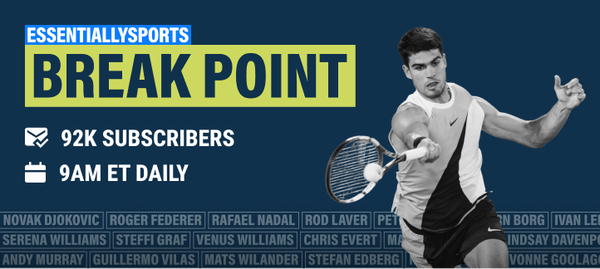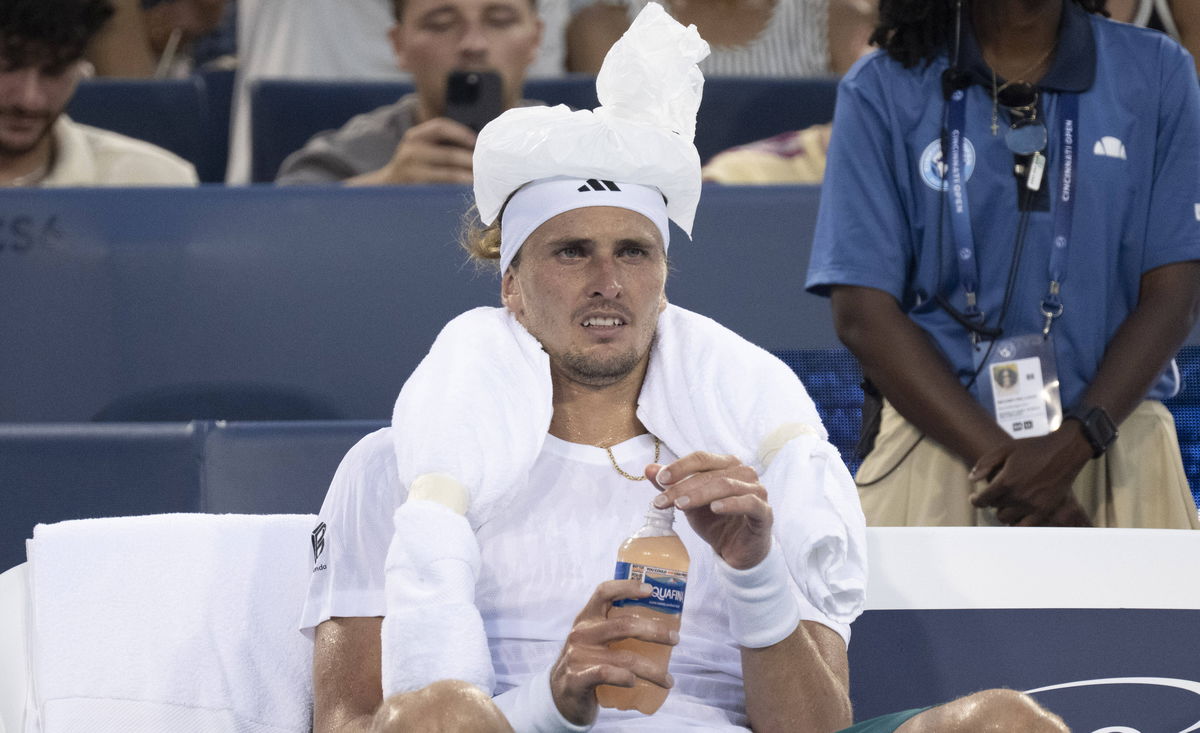
Imago
CINCINNATI, OH – AUGUST 16: Alexander Zverev GER tries to cool his over-heated body during the semifinals in the Cincinnati Open at the Lindner Family Tennis Center on August 16, 2025 in Mason, OH. Photo by Shelley Lipton/Icon Sportswire TENNIS: AUG 16 Cincinnati Open EDITORIAL USE ONLY Icon250816651

Imago
CINCINNATI, OH – AUGUST 16: Alexander Zverev GER tries to cool his over-heated body during the semifinals in the Cincinnati Open at the Lindner Family Tennis Center on August 16, 2025 in Mason, OH. Photo by Shelley Lipton/Icon Sportswire TENNIS: AUG 16 Cincinnati Open EDITORIAL USE ONLY Icon250816651
“Early on, I was told that competing at the highest level with diabetes was impossible — but my family and I refused to accept that.” When Alexander Zverev was just three years old, he was denied to compete as a professional athlete due to Type-I Diabetes. However, the German refused to let the condition overtake his life. Although he struggled, he continued by injecting insulin before every match with a Therapeutic Use Exemption (TUE). But as he stepped into the Center Court against Carlos Alcaraz, the internal health fight became apparent.
Watch What’s Trending Now!
In the Cincinnati Open, Zverev started his semifinal campaign refreshed despite a troubling QF win over Ben Shelton. All-court rallies with a mix of power gave the 2021 champion some ground to work. However, the healthy and well-rested Spaniard dug himself out of a 0-40 hold at 2-3 to win the opening set 4-6. The struggle became visibly obvious when Alcaraz was serving at 1-0 in the second set and Zverev stopped moving for anything that was more than a step away.
Ultimately, he called for a medical timeout. When he couldn’t continue even after examination, Zverev waved the white flag for a 3-6 defeat. Many players had retired early in their matches with the Cincinnati heat hitting them. However, for the German, it was his diabetes. Something that the broadcasters of the match did not know who assumed it was the weather conditions. And former ITF player Stephanie Myles could not take it.
ADVERTISEMENT
The 63-year-old Myles took to X to expose what she called a glaring knowledge gap in the broadcast booth. “It’s astonishing, at this stage, that the commentators have no conception that diabetics struggle in the heat a lot more than non-diabetics. The heat makes your blood sugar fluctuate like mad. They’re just, like, ‘he seems to be struggling again …’ 🙄” she wrote, her words sharp as steel. Myles didn’t stop there.
She highlighted how the commentary team continued to misread the signs, claiming, “They’re just assuming the heat is ‘getting to him’,” before pointing out the disconnect in their coverage. She shared another snippet that underscored her frustration as she repeated what the commentator said, “It’s hard to know just … WHAT is going on.” To her, it wasn’t just careless; it was a missed opportunity to educate the audience about a lifelong battle Zverev has been fighting.
When the broadcast showed Zverev measuring his blood sugar, Myles again tweeted what the commentators had just said, “”Maybe he can take some medication to make him feel better” – commentators.” But she was finally at ease when the broadcasters finally got to explaining what was actually happening with the German.
ADVERTISEMENT
It’s astonishing, at this stage, that the commentators have no conception that diabetics struggle in the heat a lot more than non-diabetics. The heat makes your blood sugar fluctuate like mad.
They’re just, like, “he seems to be struggling again …” 🙄 pic.twitter.com/cNcqOQO71P
— Stephanie Myles (@OpenCourt) August 16, 2025
Alcaraz, on the other hand, looked untouched by the conditions. His focus steady and movement fluid. As minutes dragged, Zverev’s discomfort was written across his body language, an anxious desire to endure, to survive. Eventually, with dignity intact, he stretched out his hand to Alcaraz, conceding not just a match but also the limits of his body under brutal conditions.
ADVERTISEMENT
Even after the battle, Carlos Alcaraz acknowledged the difficulty of competing against a rival who wasn’t at full strength. “It’s never easy playing against someone that you know is not feeling 100 per cent. It’s even tougher when it comes from Sascha, such a great player, such a great person off the court. We have a really good relationship,” he said, reflecting on why he also double-faulted four times at one point.
“We started the match really good, playing good rallies, a good level of tennis. But then all of a sudden he started to feel bad. And then my focus, I was thinking about how he’s feeling, besides focusing on myself and playing good tennis. It was a really difficult situation for me and I just wish him all the best,” Alcaraz continued.
For Zverev, the cruel twist was not new; Cincinnati’s heat had humbled him before.
ADVERTISEMENT
Alexander Zverev voices concern following mid-match medical timeout
Even before his clash with Carlos Alcaraz, Alexander Zverev had already revealed troubling signs about his health. Just a day earlier, the world No. 3 dismantled local favorite Ben Shelton in 77 minutes in a ruthless 6-2, 6-2 win. Yet, beneath the scoreline lay concern. Despite a flawless first set, Zverev faltered early in the second, requiring a medical timeout after dizziness struck. Breathing issues followed, though with medical assistance, he steadied himself, pushed through, and sealed the victory.
After the match, however, Zverev’s words carried a somber weight. The German, who runs a foundation that provides life-saving insulin to developing countries, admitted he was still feeling far from okay. “I’m not feeling too great right now. I have a day to get fresh and hopefully feel 100 per cent again,” he confessed, his voice stripped of certainty.
ADVERTISEMENT
What followed was even more revealing. “We will see. I’m not sure what happened. I stepped onto the court today and felt the best in a few months,” Zverev said, recalling the strange contrast. “I was feeling the ball incredibly well from both sides. But I started feeling not so great at the end of the opening set, and things got progressively worse. I will do everything to be at my best tomorrow.”
Top Stories
John McEnroe Lashes Out After Fan Pushes for Photo in Awkward Scene: “Go F*** Yourself”
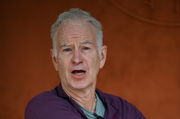
PICTURES: Carlos Alcaraz and Elena Rybakina Mark Australian Open Glory in Special Shoot
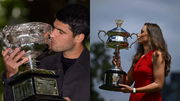
How Much Prize Money Did Carlos Alcaraz Earn After Taxes for Winning the Men’s Australian Open 2026?
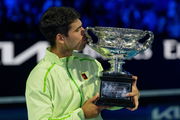
Carlos Alcaraz Calls Out Critics With a Strong Statement After Australian Open Win

Carlos Alcaraz Makes Emotional Admission After Seeing His Coach Honored at Australian Open
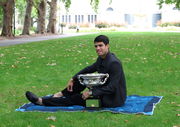
That “tomorrow” was his date with Alcaraz. The duel ended not in triumph, but disappointment. Zverev, visibly compromised, bowed out of the Masters, leaving questions unanswered and concerns amplified. Now, with the US Open looming, the great question remains: can Alexander Zverev finally conquer his body to fulfill the Slam dream that has so long eluded him?
ADVERTISEMENT
ADVERTISEMENT
ADVERTISEMENT
